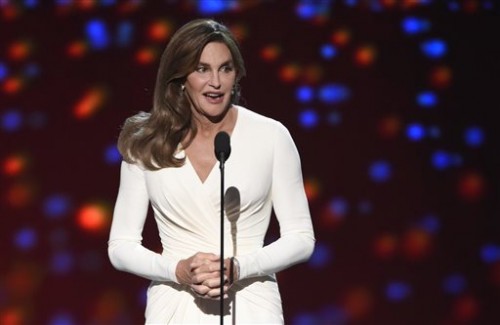
June 1, 2015, we witnessed two things occur simultaneously:
- Former Olympian Caitlyn Jenner was announced as the recipient for the Arthur Ashe Courage Award for this year’s ESPY’s.
- Hundreds and thousands of people suddenly started caring about the ESPY’s.
Just so we’re clear: #2 was a joke, though in retrospect it’s become quite obvious that some people wish #1 was as well.
When ESPN released their statement honoring Caitlyn Jenner last month, it took mere seconds for thousands to pour out their disdain over the honoree—a rather interesting feat in itself, given the 140 characters they were limited to make such critical critiques.
And while of course, there were those who stood with ESPN and found courage in the athlete’s transformation from Bruce to Caitlyn, the opposition was clear to believe that there were others more deserving.
Days following ESPN’s announcement, images and memes on Twitter began drawing buzz claiming CrossFit celebrity Noah Galloway, an army veteran who lost both an a arm and a leg in Iraq, was runner up to Caitlyn for the award. And as rare as it is for something on the Internet to be false, this one was. The rumor went so far that ESPN made comment on it in an MTV article early June, stating there is “no such thing as a runner up for the three major awards (Arthur Ashe Courage award, the Pat Tillman Award for Service and the Jimmy V Perseverance Award).”
But this isn’t a lesson on fact checking — as much as I’d like it to be. This is about comparing one courageous act to another.
For the past month and a half, names like Galloway and Lauren Hill — the late college basketball player who helped raise thousands for cancer research — have been tossed around on social media as more worthy candidates for the Arthur Ashe Courage Award than Jenner. And of course there is certainly no denying their actions were courageous in itself.
What fails to be understood is that Caitlyn Jenner receiving the Arthur Ashe Courage Award, in no way diminishes the actions of Galloway, Hill, or any other courageous figure that comes to your mind. That’s a fallacy.
The Arthur Ashe Courage Award is not awarded to the most courageous person in the world, and I like to believe people understand this.
The fact is that comparing two separate actions of two separate individuals for an award that is subjectively given is rather obsolete at this moment.
Of course, there’s no denying one’s right to disagree over the choice of a recipient for any award, certainly not one like this, where an honoree isn’t chosen on the number of points they had in a game or decided upon a ballot of votes.
It’s one thing to disagree with ESPN’s decision; it is another to use the award to unjustly attack a woman and an entire community of people.
Shortly after Jenner accepted her award last Wednesday night, director Peter Berg posted a photo on Instagram of Jenner side by side with Gregory Gadson, a US Army soldier who lost both his legs in combat. Underneath the photo, read “One man traded 2 legs for the freedom of the other to trade 2 balls for 2 boobs. Guess which man made the cover of Vanity Fair, was praised for his courage by President Obama and is to be honored with the ‘Arthur Ashe Courage Award’ by ESPN?”
While Berg’s post has now been deleted due to backlash, his demeaning words have stemmed a familiar opinion that continues to strive, one where hate and cynicism is the answer to difference.
You are not obligated to understand the life of a transgender, but you are obligated to understand that they are a part of yours.
So you can choose to welcome their life in an environment of non-acceptance, of rejection, of hostility.
A life where 41 percent of transgender Americans attempt suicide.
You can paint them that world.
But do not deny them their courage for living in it.







